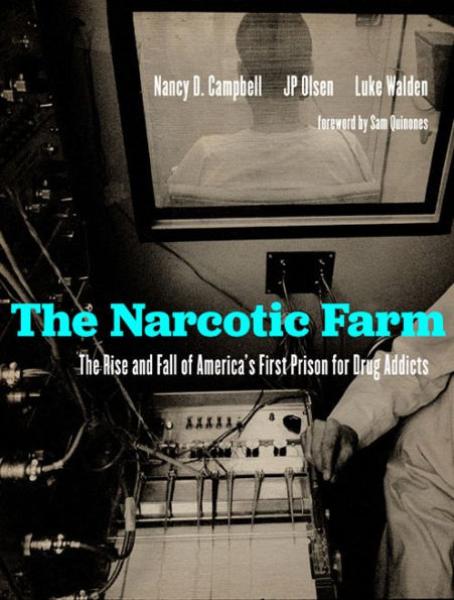Description
The United States Narcotic Farm opened in 1935 in the rolling hills of Kentucky horse country. Portrayed in the press as everything from a "New Deal for the drug addict" to a "million-dollar flophouse for junkies," the sprawling art deco facility was equal parts federal prison, treatment center, working farm, and research laboratory. Its mission was to rehabilitate addicts, who were increasingly criminalized and incarcerated as a result of strict new drug laws, and to discover a cure for opiate addiction.
This richly illustrated book offers an important history of this progressive yet ultimately doomed experiment. "Narco," as the locals called it, pioneered new treatments such as prescribing methadone to manage heroin withdrawal and developed drugs that blocked the action of opiates. The coed institution admitted federal prisoners as well as volunteers who checked themselves in for treatment, and through the years it hosted several legendary jazz musicians, including Chet Baker and Sonny Rollins, as well as actor Peter Lorre and writer William S. Burroughs. The facility ultimately closed in 1975 under a cloud as Congress learned that Narco researchers had recruited patients as test subjects for CIA-funded LSD experiments from 1953 to 1962, part of the notorious project MK-Ultra.
Featuring a new foreword by Sam Quinones, The Narcotic Farm offers a vital perspective on US drug policy, addiction, and incarceration as the nation struggles with a new opioid epidemic.
Nancy D. Campbell, professor of science and technology studies at Rensselaer Polytechnic Institute in Troy, New York, is a historian and the author of OD: Naloxone and the Politics of Overdose.
JP Olsen is a documentary filmmaker, writer, and composer, director of original programming at HBO, and a teacher of journalism at Columbia University. He lives in Brooklyn, New York.
Luke Walden is assistant professor of communication arts at Mitchell College in New London, Connecticut, and a documentary filmmaker. He lives in Providence, Rhode Island.
" The Narcotic Farm works its magic by recapturing, in images and words, a lost world." -- David Courtwright, author of Dark Paradise, Addicts Who Survived, and Forces of Habit
"A fascinating photo essay lovingly saved from obscurity." -- Errol Morris, Academy Award--winning documentary filmmaker
"A wealth of revealing photographs and documents that speaks volumes about what it was like to be a junkie in the mid-twentieth century." -- Luc Sante, author of Low Life and Evidence
"Beautiful, fascinating. The story brings an important moment in history vividly to life. It's a stunning work." -- Dave Isay, founder of StoryCorps
"Compelling. Fascinating." -- Richard Stratton, founder of Prison Life
"Everyone who cares about addiction and recovery in this country should look at these pictures and read this book." -- Susan Cheever, author of My Name Is Bill Wilson: His Life and the Creation of Alcoholics Anonymous
"Its text interspersed with hundreds of photographs, the book keeps one eye on the details of daily life -- haircuts and manicures, farm work, golf, and music -- and another on the befuddlements of American drug policy embodied by the farm. The farm's doctors had a more humane approach to human weakness than cops did, but both shared the flawed assumption that allows the war on drugs to continue: that America can be drug free." -- Mother Jones
"Profound.... Narco's inception and life shines a light on how US drug policy has developed today, as well as offers insights and cautionary tales when it comes to addressing drug addiction nationally in the wake of what is essentially America's second opioid epidemic." -- Forbes
"The authors are to be commended for an accessible text and high-quality images that vividly convey the history of the Narcotic Farm." -- Eric Schneider, author of Smack: Heroin and the American City
Product Details
- University Press of Kentu Brand
- Mar 16, 2021 Pub Date:
- 1949669246 ISBN-10:
- 9781949669244 ISBN-13:
- 208 Pages
- 7.3 in * 10 in * 0.9 in Dimensions:
- 2 lb Weight:




